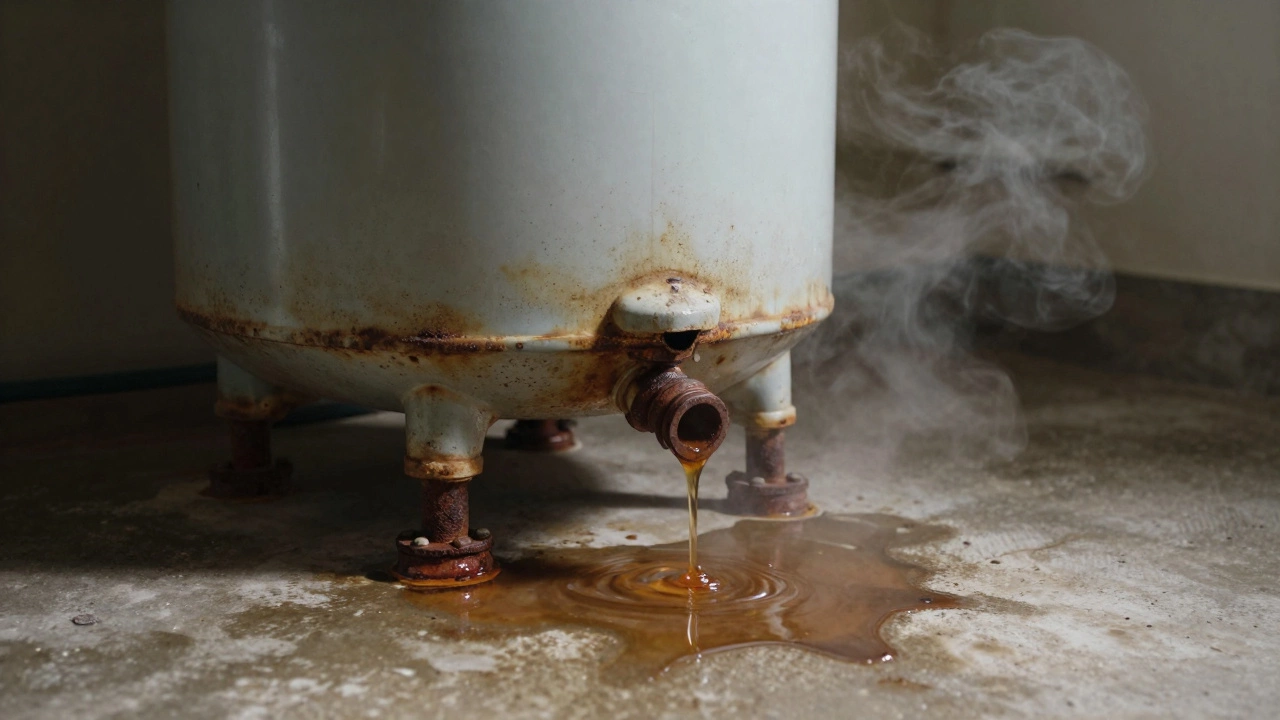Water Heater Signs You Shouldn't Ignore
If your shower suddenly turns cold or you hear strange noises, your water heater might be waving a red flag. Spotting the right signs early can save you from a cold morning and a pricey repair bill. Below are the most common clues that something’s wrong and what you can do about them.
Common Warning Signs
1. No Hot Water or Weak Hot Water. When you turn on the tap and only lukewarm water comes out, the heating element could be failing, or there might be a buildup of sediment blocking the flow.
2. Strange Noises. Banging, popping, or rumbling sounds usually mean sediment is scorching at the bottom of the tank. Over time this can crack the tank and cause leaks.
3. Leaking Water. Any puddle around the base of the heater is a sign of a possible tank crack or a loose pipe connection. Even a small drip can become a flood if ignored.
4. Discolored or Smelly Water. Rusty, cloudy, or foul‑smelling water suggests corrosion inside the tank or a failing anode rod.
5. Rising Energy Bills. If you notice your electricity or gas bill climbing without a change in usage, the heater may be working harder than it should because of a failing component.
What to Do Next
First, turn off the power or gas supply to avoid any safety hazards. Then, check the temperature setting – it should be around 120°F (49°C). Too high can cause excess wear.
Next, flush the tank. Drain a few gallons, then let fresh water run for a minute to clear out sediment. Doing this once a year can extend the heater’s life dramatically.
If you see leaks, tighten any visible fittings. If the tank itself is leaking, it’s time to replace the unit. Most water heaters last 8‑12 years, so compare the age of yours to that range.
When the heating element or thermostat is suspect, you can test them with a multimeter if you’re comfortable with basic DIY. However, many homeowners prefer to call a professional to avoid voiding warranties.
Finally, schedule a professional inspection at least once a year. A qualified technician can check the pressure relief valve, examine the anode rod, and ensure everything is sealed correctly.
Remember, catching these signs early means you’ll spend less time in a cold shower and more time enjoying reliable hot water. Keep an eye on the symptoms, perform simple maintenance, and don’t hesitate to call a pro when the issue looks serious.
What Are the Signs of a Water Heater Going Bad?
0 Comments
Learn the key signs your water heater is failing-discolored water, strange noises, leaks, and age. Catching these early can prevent floods and costly emergency repairs. In Dunedin’s cold winters, reliable hot water isn’t optional.
Read MoreSigns You Need a New Hot Water Heater: How to Know When It's Time
0 Comments
Your water heater might be whispering (or groaning) that it needs to retire. Learn how to spot telltale signs and save yourself from cold showers & costly leaks.
Read More
